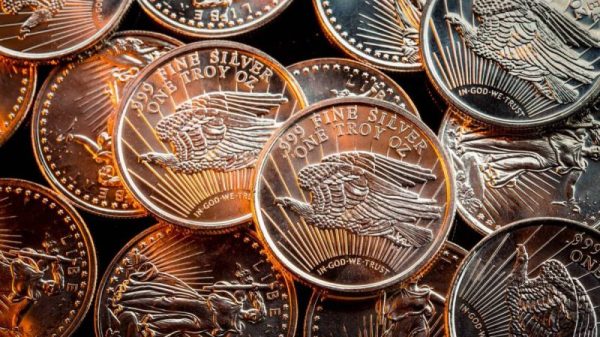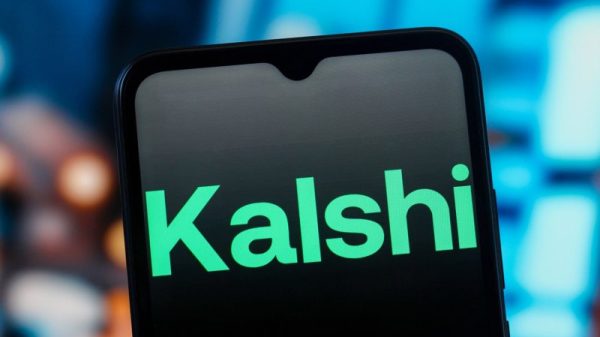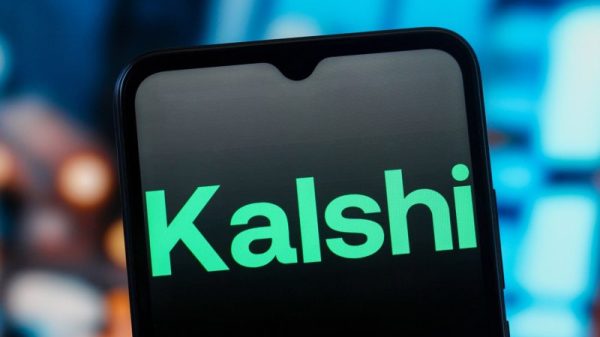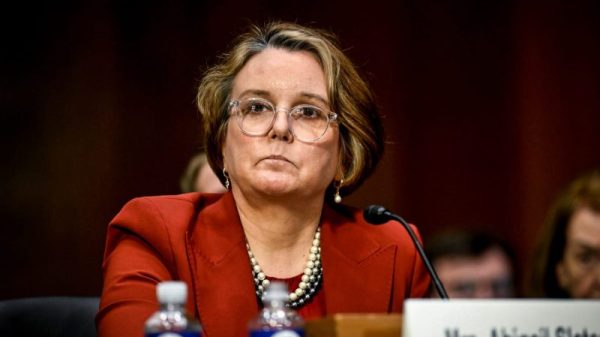The felony conviction of former president Donald Trump might or might not become a turning point in the 2024 presidential election. But its precedent-breaking outcome has sharpened the competition between him and President Biden to define the stakes and the choices for voters in November.
Almost nothing has been normal about this election, and now, above all, is the sobering reality that one of the two likely major candidates for president will run as a felon convicted on 34 counts by a Manhattan jury. No former president has ever been so judged nor sought the nation’s highest office with such a badge of dishonor.
Nearly as striking is the degree to which the hierarchy of the Republican Party — and presumably tens of millions of ordinary citizens who follow its lead — have rallied behind Trump in questioning and in many cases condemning a judicial system that has been a pillar of American democracy. Measured responses about the jury’s work have been the exception rather than the rule.
Two big questions could define the debate between Trump and Biden from here forward. The first is which candidate poses the bigger threat to the future of the country. The second is which candidate will make the lives of Americans better than they are today. Though related, the first focuses on character and temperament, the second on substance and policy.
For supporters of the incumbent president, the answers to both are simple and straightforward. It is the former president who is the clear danger, someone who vows retribution against his adversaries; would allow a restriction of freedoms, including access to abortion; favors an expansion of executive power that could lead to authoritarian rule and undermine democratic institutions; and, internationally, to disrupt or shatter traditional alliances. And it is Biden who they see as both determined to protect democratic institutions while pursuing policies that would support American families, combat climate change and advocate a leadership role for the United States in the world.
William Galston of the Brookings Institution pointed to one domestic priority Trump has talked about as an example of the threat he would pose if elected to another term. “If Trump is serious about his plan to round up and deport 10 to 15 million illegal immigrants, that would require a profound transformation of not only law enforcement but the U.S. military and many, many aspects of American society,” he said. “It would represent a profound disruption to every town and city. Ripping 10 to 15 million people out of the body politic is momentous.”
But for every Biden supporter who believes these answers are obvious, polls suggest there are as many or more supporters of Trump who believe the opposite. The New York trial has heightened distrust of the judicial system by, in their view, unfairly targeting their champion to weaken his political standing. They blame Biden for bringing the pain of inflation to many families, increasing illegal immigration, degrading society itself and, globally, overseeing a decline in American power and prestige. They believe they were better off during Trump’s presidency than they are now — and that another four years with Biden as president is the greatest threat.
The risks that voters will weigh before November are not equivalent. Trump, by his past actions — including trying to overturn the 2020 election — and present-day statements about his intentions if elected, poses threats to core elements of democracy. What voters are weighing about Biden is whether he has the capacity for another four years in office and the strength of leadership and the policies needed at a time of turbulence at home and abroad.
The seven-week trial of Trump on charges of falsifying business records as part of an effort to affect the outcome of the 2016 election amounted to an extended freeze in a campaign that has been static since last year. The former president was required to be in the courtroom most days, silent except for regular tirades to reporters on his way out of court. Meanwhile, Biden declined to comment in any way, lest he add fuel to the assertion by Trump and his allies that the trial was part of a political effort to bring down his rival.
On Friday, both men weighed in on the verdict. Trump offered a lengthy, grievance-laden monologue, replete with falsehoods and meandering asides about the state of the country and the unfairness of the trial — a “rigged” process, as he has said repeatedly — and a claim that “we’re living in a fascist state.” Hours later, Biden defended the judicial system and declared that it is “reckless … dangerous, and it’s irresponsible” for anyone to question the verdict simply because they don’t like the outcome, while acknowledging Trump’s legal right to an appeal.
Neither candidate nor their campaigns and surrogates are likely to back away from those positions. The bigger question is whether Trump in particular can begin to pivot from the trial and campaign with a focus on the American people rather than himself. History suggests he will struggle mightily to make that turn — and his extended rant Friday provided evidence of how the trial has affected him.
Former New Jersey governor Chris Christie, a onetime Trump confidant who ran against him in the primaries, told Democratic strategist David Axelrod and Republican strategist Mike Murphy for their “Hacks on Tap” podcast last week that too much attention was being paid to how a guilty verdict would affect voters.
“It’s not just what impact it will have on voters that’s important,” Christie said, “but it’s what impact it will have on him because he will get angrier and angrier and more paranoid. And I don’t think that makes him an attractive candidate to the very narrow swath of voters that he has to try to win in order to get the presidency back.”
Democratic pollster Anna Greenberg said in an email, “Trump is going to run on rigged courts and rigged elections. I don’t think he can help himself even though it would be better for him to talk about inflation. Biden is going to run on democratic norms, women’s rights — especially abortion — and the rule of law and be able to ask voters if they want a convicted felon as their president.”
In the end, said former Republican National Committee chair Rich Bond, “The tipping point will be who voters consider the most dangerous choice. Do they stick with an aging incumbent with a questionable record? Or do they entrust their future to a convicted felon who lies about nearly everything except his desire to be a wannabe dictator?”
Three other Trump cases are pending, two involving his role in trying to subvert the 2020 election; the third charges that he deliberately withheld classified documents. Given delays in all of them, it now appears likely, though not certain, that none of the others will be heard before the election.
But the New York trial is hardly the only big event in the weeks ahead that could influence voters and perhaps change minds. On Monday, Hunter Biden will go on trial in Delaware on felony gun charges, the first of two trials that could bring convictions for the president’s son. By the end of the month, the Supreme Court is likely to issue its ruling on Trump’s claim to absolute immunity from prosecution, which could impact the federal Jan. 6 case. And on June 27, Biden and Trump will meet in Atlanta for the first of two planned debates. (A second is scheduled for Sept. 10.)
On July 11, Trump will appear in court in New York for sentencing in the hush money trial. Four days later, Republicans will gather in Milwaukee for their national convention to formally nominate Trump, and sometime in that window, he will name his running mate. Democrats will meet in Chicago in August for their convention, with fears of protests over Biden’s handling of the Israel-Gaza war.
In the short term, Trump’s conviction has energized Republicans, much as the four indictments a year ago consolidated support around his bid for the GOP nomination. From House Speaker Mike Johnson (La.) to an array of other elected officials, the Republicans seized on the verdict as evidence of a weaponized judicial system. Trump’s campaign claimed to have raised $52.8 million in online donations in the 24 hours after the verdict, and some GOP strategists see the verdict as an opportunity now to play offense against Biden by portraying Democrats as defenders of a corrupted system.
Political strategists are rightly cautious about how or whether the conviction will affect the campaign. The polls have changed little for many months. Trump has been holding a slender advantage nationally and in battleground states but many of these polls are within the margin of error. They do suggest, however, that Biden faces a challenging path to an electoral college majority.
Some polls taken before the verdict indicated that a conviction could prompt some Trump supporters to peel off. Democratic pollster Celinda Lake said she is convinced that the outcome of the trial will have an impact, real or indirect, particularly in the perceptions of the character of the two candidates. “It helps shift the character axis from strength and weakness, which Trump wanted, to stability and presidential character, which serves Biden better,” she said.
Lake is part of the Biden campaign polling operation but said she was not speaking for the campaign.
The verdict does provide Biden with an opportunity to try to change the script and the Atlanta debate will be the most high-profile moment for him to do so. A Democratic strategist said one challenge for Biden until now has been that many voters had greater fears about a Biden second term than Trump returning to the Oval Office. The verdict could change those perceptions, especially with suburban women.
Many voters have expressed disappointment at having to choose between Biden and Trump. Many are cynical about the state of politics. What impact the verdict will have on them is also unknowable now, but there is a possibility that some will choose to vote for a third-party candidate or simply not vote in the presidential race.
The election is now five months away. After Thursday’s verdict, the election more than ever poses elemental questions for voters — about themselves, their own well-being and perhaps above all the country they want to see in the future. The question underlying them all is who they trust most to deliver it, Biden or Trump.





























